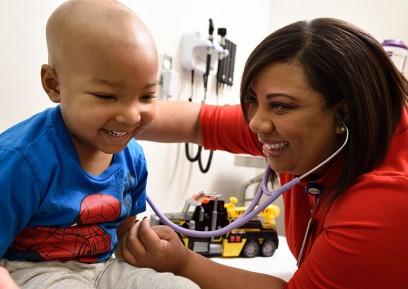
Fourth Year Advanced Training Fellowships Immunotherapy Fellowship
Immunotherapy Fellowship Co-Directors
Immunotherapy Fellowship Program Director

Ranked #6 in Cancer
Proud to be ranked one of the best children’s cancer centers in the country by U.S. News & World Report for seven consecutive years.


